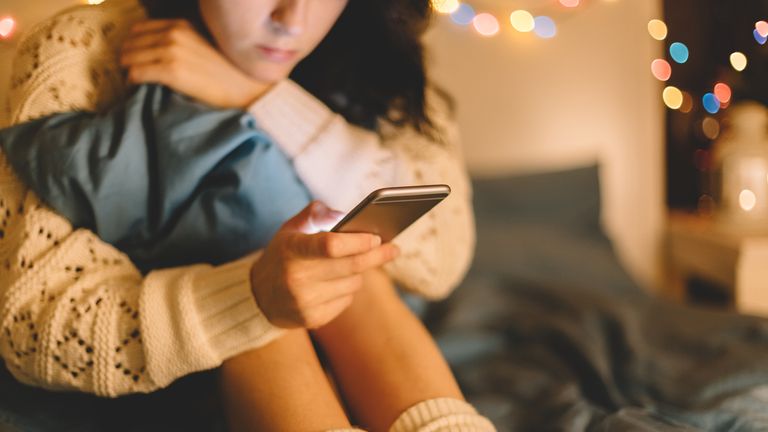More than half of the UK’s children (51%) say they have been exposed to more misleading online content in the last year than before 2020, a survey has found.
The poll, conducted to coincide with Safer Internet Day, said misleading information such as fake news and altered images – often left youngsters feeling annoyed, upset, sad, angry, attacked or scared.
Nearly half (48%) said they were being exposed to online misinformation every day, while more than one in 10 were seeing it more than six times a day.
The internet has also been a force for good, however, as almost three-quarters (73%) of eight to 17-year-olds who took part said they felt being online had helped them through the pandemic and lockdowns.
But the survey of more than 2,000 young people questioned by the UK Safer Internet Centre (UKSIC) in December, suggested they were aware of misleading content and happy to play with it themselves.
More than two in five (43%) have noticed their friends and peers sharing misleading content online, while over a third (35%) say they have seen influencers, bloggers, celebrities or people in the public eye sharing it.
And a quarter (25%) admitted sharing it themselves, although they did it “just for fun”, according to some.
Nearly two-thirds (63%) said they were likely to fall for such content, such as gaming scams, hidden sponsored ads, filtered or edited images and stories by unofficial sources.
Will Gardner, director of UKSIC, said: “Managing unreliable content and contact is fundamental to being safe online, as well as for looking after others online.”
With the internet vital to learning during the coronavirus pandemic, school leaders’ union, the National Association of Head Teachers (NAHT) has urged parents to “stay alert” to online risks.
NAHT general secretary Paul Whiteman said: “Just because children are spending more time on their devices for schoolwork, doesn’t mean screen time should become unlimited or devices should be allowed to be used entirely unsupervised.”
Children’s Minister Vicky Ford, said: “We want children to have access to the tools they need to navigate modern life, including how to identify disinformation and trusted sources, stay safe online, and make the right decisions when engaging with media content.”
UKSIC has worked with young people to create the Young Person’s Charter, which it will put to the government with a list of requests about making the internet safer.
Those include industry accountability, establishing better protection online and providing educational resources.

